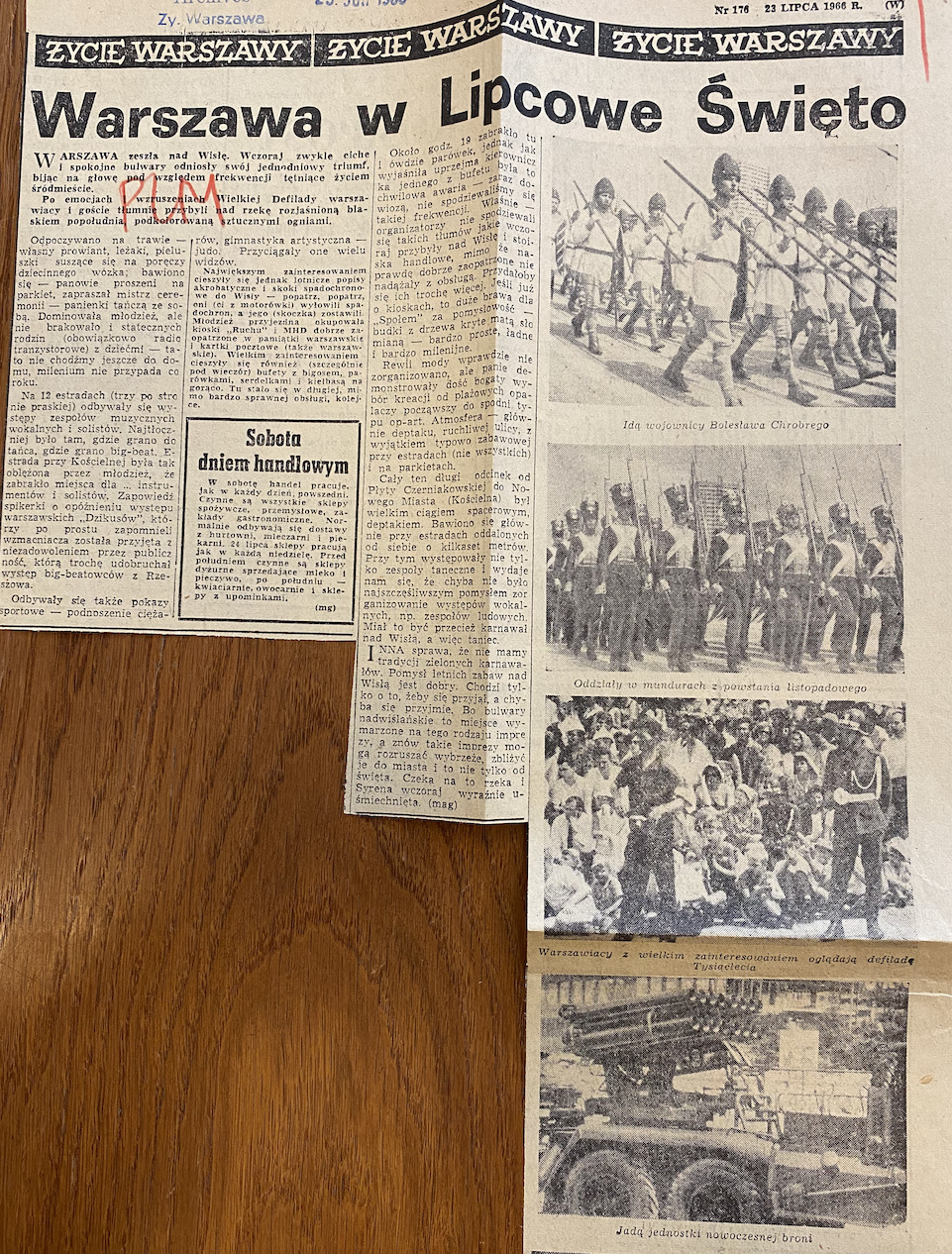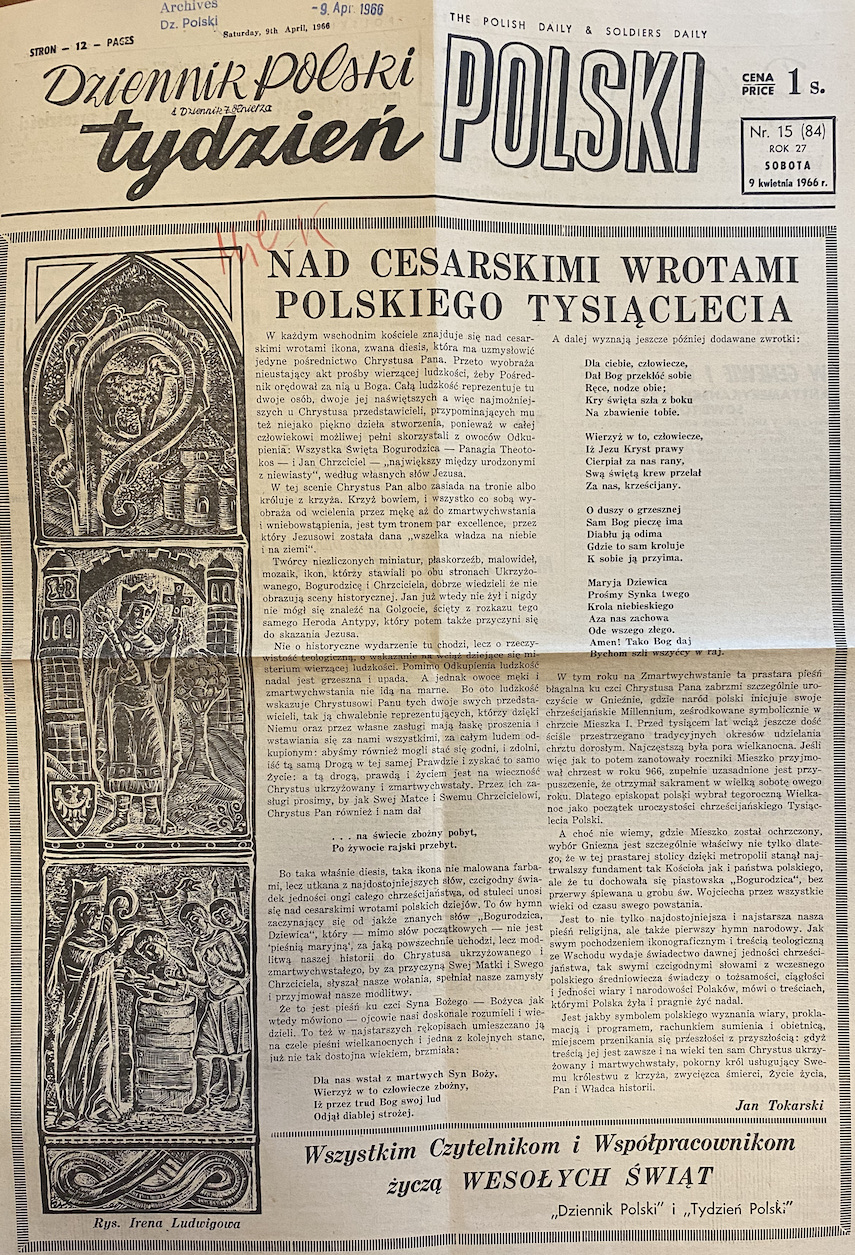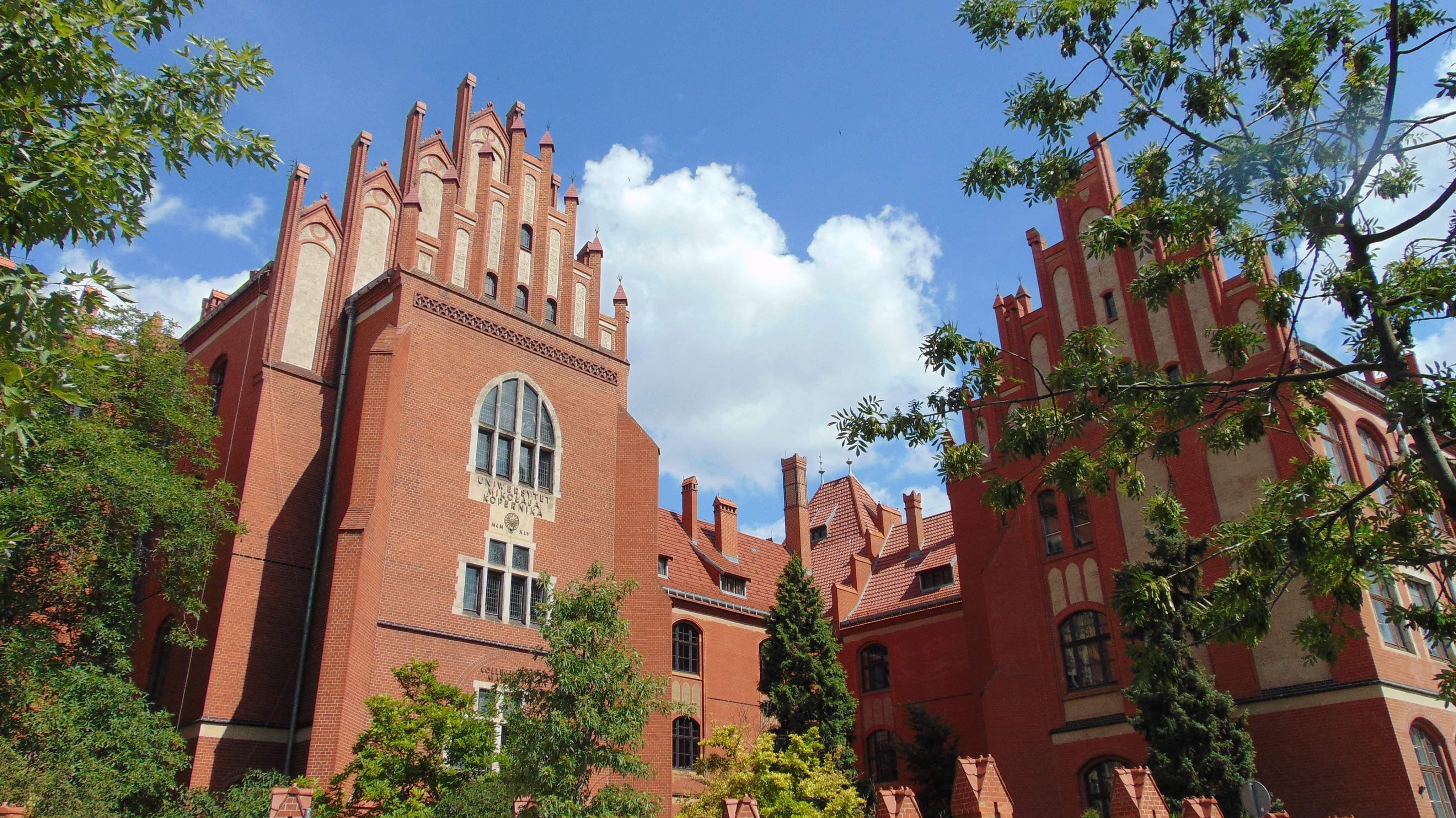Anniversary Celebrations in Central and Eastern Europe
From the nineteenth to the twenty-first century, lavish celebrations of various anniversaries were essential elements of creating modern national identities in Central and Eastern Europe and the historic politics or politics of memory (Geschichtspolitik) of particular states.
Although our project concerns the celebration of the millennium of Christianity in Central and Eastern Europe, it may have a broader dimension. Such celebrations are part of a particular model of creating a modern community—corresponding to the current needs of a state, a nation, and a religious group.

The focus of our interest will be the influence of such anniversary celebrations on the culture of particular countries or nations of Central and Eastern Europe as well as the opposite perspective: the form (and content) adopted by (during) these events, based on a specific cultural model. Another essential element of our research will be the transnational dimension and cross-fertilization between countries. Such transnational cooperation or borrowing took place within transnational institutions, e.g. the Catholic Church, or involved ideological collaboration, e.g., the one occurring within the Eastern Bloc. Finally, the idea of anniversary celebrations fits perfectly (and conceptually extends) the notion of “inventing tradition”.
Various kinds of celebrations, anniversaries, commemorations, parades, and state and church ceremonies played a significant role in all those millennial projects. They are an essential part of what Terrence Roger and Eric Hobsbawm once called “invention of tradition”. In the cases they analyzed, it was a matter of “inventing” nations or states, strengthening them, symbolically solidifying them, and making the politics of memory more coherent. Similar mechanisms can be found in celebrations of anniversaries: they are not contradictory to history, but neither are they a study of the past. They do not adhere to facts nor are their reconstruction; they are a game and spectacle prepared for the needs of the present. They can refer to what happened centuries ago—it is a convenient starting point, which gives a stimulus for strictly academic research—but they are aimed at contemporary audiences and have political goals.

In our project we are interested in both the cultural background of such celebrations and their political role. The context is, of course, the transition from a pre-modern (or early modern) society to a fully modern one. And in this sense, it is a process of a broader nature. It is not related only to the post-1989 transformations in Central and Eastern Europe. We can find it earlier in the modernizing societies of Western Europe and somewhat later in the decolonizing communities of the world.
In the case of Central and Eastern Europe, however, such celebrations are associated with the ongoing processes of the emergence of modern nations in the nineteenth and twentieth centuries and nation-states in the twentieth and twenty-first centuries.
The history of nniversary celebrations can be inscribed in the history of politics of memory, the building of national identities, the marriage of Church and state (and sometimes mutual competition), as well as in the presentation of specific (e.g. national) values or (political) beliefs.
One of the least researched and, at the same time, most significant events of this kind were the so-called millennium celebrations associated with the millennium (often symbolic) of the official adoption of Christianity. This is our specific focus within the grant.
* * *
The photographs illustrating the blog entry come from the Vera and Donald Blinken Open Society Archives. Collection HU OSA 300-50-1, Radio Free Europe (RFE/RL Research Institute), 50 Polish Unit, Box 6 (image 1), Box 1897 (image 2).
[The text was originally published on a private blog https://adamkola.eu/posts,12,pl.html]
A. K.

